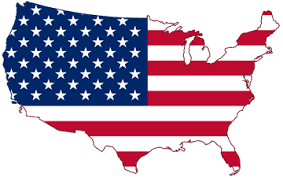Strengthening Ties: The Evolving Relationship
between the United States and Morocco
Historical Ties: A Foundation of Friendship
The United States and Morocco's connection dates back to the late 18th century when the two nations signed the Treaty of Peace and Friendship in 1786. This historic agreement, negotiated under the leadership of Moroccan Sultan Sidi Mohammed ben Abdallah and American diplomats John Adams and Thomas Jefferson, marked the beginning of diplomatic relations. It is noteworthy as one of the earliest treaties that the newly formed United States signed with a foreign power, emphasizing the value of cooperation, trade, and friendship.
Throughout the 19th and 20th centuries, the
relationship between the United States and Morocco grew stronger through
diplomatic exchanges and collaboration on various issues. Morocco's support for
the United States during World War II and the diplomatic recognition of
Moroccan independence in 1956 further cemented their friendly ties.
Shared Interests and Values
Economically, the two countries have increased trade
and investment ties, bolstering economic cooperation. Morocco's strategic
location, as a bridge between Europe and Africa, presents significant
opportunities for both countries.
Security and Counterterrorism Cooperation
The United States and Morocco have a robust security
partnership that encompasses intelligence sharing, counterterrorism efforts,
and military cooperation. Morocco has been an important ally in the fight
against terrorism and extremism, working closely with the U.S. to combat shared
security challenges in the region.
The Promise of the U.S.-Morocco Free Trade
Agreement
In December 2020, the United States recognized
Morocco's sovereignty over the Western Sahara and, in exchange, Morocco agreed
to normalize relations with Israel. This historic agreement reflects the
evolving dynamics of the relationship between the United States and Morocco. In
conjunction with this recognition, the two countries have agreed to work toward
a U.S.-Morocco Free Trade Agreement (FTA). This FTA holds the potential to
enhance economic ties and promote investment, benefitting both nations.
People-to-People Ties and Cultural Exchange
The cultural and educational exchanges between the
United States and Morocco have played a crucial role in fostering mutual
understanding and appreciation. Numerous Moroccan students study in the United
States, and Moroccan-Americans continue to make valuable contributions to
American society. Furthermore, initiatives such as the Fulbright Program,
cultural festivals, and artistic collaborations have further enriched the
cultural exchange between the two nations.
Conclusion: A Dynamic and Evolving Relationship
The relationship between the United States and Morocco
is one that spans centuries and has consistently evolved to address the
changing needs and interests of both nations. As the two countries continue to
collaborate in areas such as trade, security, and diplomacy, the promise of a
U.S.-Morocco Free Trade Agreement signals a new era of economic cooperation.
With shared values, mutual interests, and a commitment to peace and stability
in the region, the U.S.-Morocco partnership is a testament to the enduring
potential of international relations built on trust, respect, and a shared
vision for a better future.









No comments:
Post a Comment